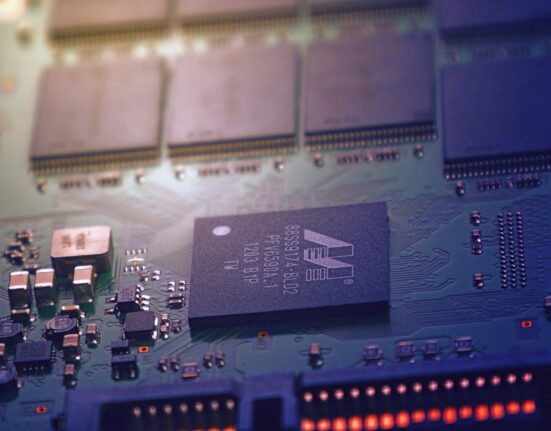The healthcare landscape is undergoing a significant transformation, and at the heart of this revolution lies big data. The ability to collect, analyze, and interpret vast amounts of data is providing healthcare professionals, data analysts, and tech enthusiasts with unprecedented insights and opportunities. In this post, we will explore how big data is reshaping healthcare, discuss its implications, and highlight the technological advancements driving this change.
What is Big Data?
Big data refers to the massive volume of structured and unstructured data that organizations generate daily. In healthcare, this data comes from various sources such as electronic health records (EHRs), medical imaging, genomic sequencing, billing records, and wearable devices. The challenge lies not only in collecting this data but in effectively analyzing and utilizing it to improve patient outcomes and operational efficiency.
The Role of Big Data in Healthcare
1. Enhancing Patient Care
Big data analytics enables healthcare providers to offer personalized care by analyzing patient histories, genetic information, and real-time health data. This leads to:
- Predictive Analytics: By identifying patterns and trends, healthcare providers can predict the likelihood of diseases and conditions before they manifest, allowing for early intervention.
- Precision Medicine: Tailoring treatments based on individual genetic make-up and lifestyle factors, ensuring more effective and targeted therapies.
- Real-Time Monitoring: Wearable devices and IoT technologies continuously capture patient data, enabling timely responses to any health anomalies.
2. Improving Operational Efficiency
Hospitals and healthcare facilities can harness big data to streamline operations and reduce costs. Key areas of improvement include:
- Resource Allocation: Predictive analytics can forecast patient admissions, allowing for better staff scheduling and resource management.
- Supply Chain Management: Analyzing purchasing patterns and inventory data ensures that medical supplies are optimally stocked, reducing waste and expediting procurement.
- Clinical Decision Support Systems (CDSS): Integrating big data with CDSS provides healthcare professionals with evidence-based recommendations, reducing diagnostic errors and improving treatment plans.
3. Advancing Research and Development
The integration of big data into research and development processes accelerates the discovery of new treatments and therapies:
- Genomic Research: Analyzing large genomic datasets helps identify genetic markers associated with diseases, paving the way for innovative treatments.
- Clinical Trials: Big data analytics enhances the design and execution of clinical trials by identifying suitable candidates, monitoring progress, and analyzing results with greater accuracy.
- Drug Discovery: Machine learning algorithms sift through vast chemical databases to identify potential drug candidates, significantly cutting down the time and cost associated with traditional drug discovery methods.
Technological Advancements Driving the Transformation
Several technological advancements are fueling the transformation of healthcare through big data:
1. Artificial Intelligence and Machine Learning
AI and ML algorithms process vast amounts of healthcare data, uncovering insights that were previously unattainable. These technologies are instrumental in predictive analytics, image recognition, and natural language processing, enhancing diagnostic accuracy and personalized care.
2. Cloud Computing
Cloud platforms enable healthcare providers to store and analyze massive datasets without investing in expensive on-premise infrastructure. This scalability ensures that even smaller healthcare facilities can leverage big data to improve patient care and operational efficiency.
3. Blockchain Technology
Blockchain ensures the security and integrity of healthcare data by providing a transparent and immutable ledger. This technology, is particularly valuable in maintaining patient records, conducting secure transactions, and ensuring compliance with data protection regulations.
4. Internet of Things (IoT)
IoT devices, such as wearable health monitors and smart medical equipment, continuously generate real-time data. This data feeds into big data analytics platforms, providing healthcare professionals with actionable insights to monitor and manage patient health proactively.
Challenges and Future Directions
While the benefits of big data in healthcare are immense, several challenges need to be addressed:
1. Data Privacy and Security
The sensitive nature of healthcare data necessitates robust security measures to protect patient information from breaches and unauthorized access. Compliance with regulations such as HIPAA and GDPR is critical.
2. Interoperability
Healthcare data often resides in disparate systems, making it difficult to integrate and analyze. Efforts to standardize data formats and protocols are essential to ensure interoperability across different platforms and organizations.
3. Ethical Considerations
The use of big data in healthcare raises ethical questions related to data ownership, consent, and bias. Establishing clear guidelines and ethical frameworks is crucial to ensure responsible data usage.
Conclusion
The transformation of healthcare through big data is a dynamic and ongoing process that holds the promise of revolutionizing patient care, operational efficiency, and medical research. As healthcare professionals, data analysts, and technology, enthusiasts, staying abreast of these developments is essential to harness the full potential of big data. By addressing challenges and embracing technological advancements, we can pave the way for a more efficient, effective, and equitable healthcare system.








Leave feedback about this